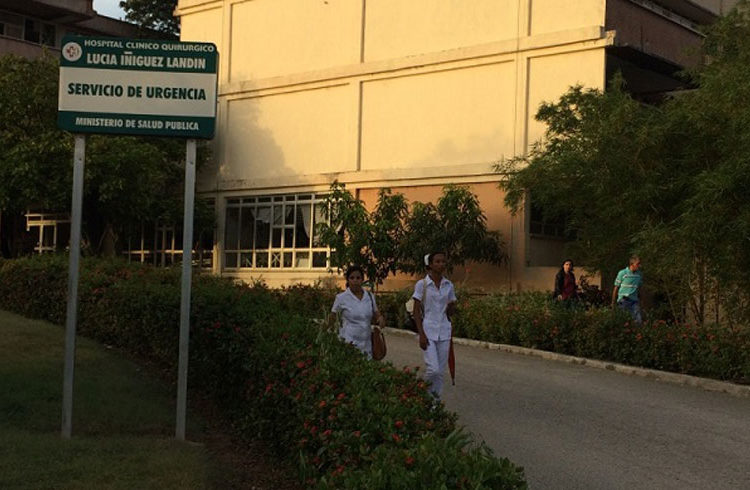Despite the investments made by the State, the state of hospitals in Cuba suffer due to the “negligence” and “lack of discipline” which is reflected in the “depredation” of materials and frequent hygiene problems due to the obstruction of pipes and the bad management of food waste, the daily Granma published.
“The quality of hospital care depends, to a great extent, on the infrastructure, but negligence and lack of discipline can mar the efforts made in relation to this,” the Cuban publication pointed out about “a phenomenon that is unfortunately recurrent in the country.”
The windows, pipes, bathroom and electrical fixtures are the object of thefts and other types of indiscipline in hospitals like the Lucía Íñiguez Landín of the province of Holguín, used as an example in the article.
The recent million pesos’ worth of investments to improve this center “are marred by the lack of social discipline and vulgar criminal acts that undermine the good march of the hospital and lead to the use of additional sums of money,” the hospital’s director, Luis Manuel García, said.
In late 2016, “faucets and parts of the bathroom sinks, shower heads, lights and sockets, a great deal of them stolen by unscrupulous persons,” had to be replaced, said the administrative assistant director, Salvador Copping del Toro.
The “depredation” even affected the large windows, whose theft “suggests premeditated actions by the criminals, with the use of tools and the detailed study of the sites and entrance and exit routes,” Granma affirms.
For lack of night guards, the hospital has installed security cameras and iron fences in some accesses, eliminating for the time being the theft of the glass windows.
However, patients and companions cited in the feature article suggest that the authors of the thefts are the hospital personnel, “some of whom could have found a way to profit.”
In addition to the thefts there are hygiene problems due to bad practices like “throwing leftovers and other wastes” in the bathroom sinks and toilets, which creates clogging in the pipes, from which the hospital personnel have even extracted bones, rags, gauze, plastics and paper.
“The obstructions in the drainage system give rise to the suspension of the supply of water, which in turn affects the patients’ personal hygiene and the general functioning of the center,” the daily adds.
Wastes and leftovers are also thrown out the windows, clogging the draining systems of the lower floors, causing leaks and filtrations inside the hospital.
Due to this situation, the hospital is assessing the elimination of the permits currently given to patients’ companions to enter the health center with food.
To this is added the lack of a system to collect the remains of food by the hospital, something that always “affects” the hygiene of the wards: “the personnel that serves the food to the patients is the one that picks up the leftovers as part of their own initiative, obviously to feed animals,” the article affirms.
“The changes will definitively come with the strong popular response, geared at reestablishing the care and conservation of the locales and the means of the center,” Granma added.
In Cuba, the healthcare system is universal and free, which is considered one of the principal achievements of the Cuban Revolution together with the island’s educational system.
However, the bad state of the medical installations has recurrently been the object of criticisms by the Cubans, in addition to other difficulties like the lack of medicines in the last year, a problem that has been recognized by the authorities.
EFE / OnCuba










